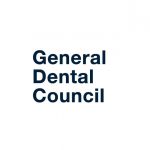A dentist who faced a very stressful clinical negligence claim after carrying out root canal treatment, has been successfully defended in court by the Dental Defence Union (DDU).
It was alleged that the DDU member, who was an experienced dentist, did not perform an adequate root canal treatment and provided an ill-fitting crown. However the judge agreed with the expert instructed by the DDU who, supporting the member’s actions, concluded that the treatment was carried out to a reasonable standard. The claim was won at trial as a result.
The claimant, who was represented by Dental Law Partnership, was seeking £18,000 in compensation and legal costs. However, with the dentist’s reputation on the line, the case was about much more than financial consequences as John Makin, head of the DDU, explains:
“Our dentists for dentists’ ethos means we understand the need to support the reputation of individual members and the wider profession. In this case, it may have been more economical to settle the claim out of court because of the legal fees involved in a trial. However, our experienced claims handlers were confident of mounting a robust defence of the members’ actions all the way to court and this approach proved justified.”
The dentist commented: “It was a very arduous time however throughout the process, the DDU team were very helpful and hard working. The court case lasted three days and the experience was like being on a rollercoaster with ups and downs. Hopefully this result will reduce the likelihood of claims and the resulting stress that we as dentists experience even when we have carried out treatment within best practice and to the best of our abilities. Thank you to the DDU for standing by me.”
John Makin concluded: “Despite the positive outcome for our member, it cannot be overlooked that the claim took more than two years to reach a conclusion and this was undoubtedly stressful for those involved. In addition, the legal costs, which were met by the DDU, were substantial.
“The DDU successfully defended almost 60% of dental claims over a recent 12 month period, and it is unusual for a case to reach a court hearing. Our role is to relieve the burden for our members, acting in their best interests and safeguarding professional reputations. We do not settle claims for the sake of expediency and put our members at the heart of decisions about how their case is managed.”
* Maxwell v Valliani and ANOR. County Court (Manchester) [2021]













